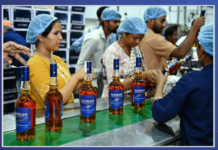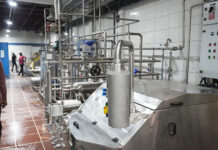Recognizing the mutual benefits of scientific collaboration in a broad field of activities of global concern and interest, India has rejoined IIASA as a full member through the Technology Information, Forecasting, and Assessment Council (TIFAC).
Research collaborations between IIASA and India stretch back to the 1970s and continue to bring new insights into the challenges the country and wider region face. In particular, past collaborations have provided a global perspective, interdisciplinary research expertise, and policy relevance to issues ranging from the future of India’s energy system to tackling air pollution. This partnership is set to be strengthened and expanded by the country’s membership of IIASA through the Technology Information, Forecasting and Assessment Council (TIFAC), an autonomous body under the Department of Science and Technology of the Government of India. TIFAC will represent India as National Member Organization on the IIASA Council with support from the Department of Science and Technology. India’s membership of IIASA will initially be for five years from January 2020, after which it will automatically be renewed.
“I am confident that our membership of IIASA will facilitate increased scientific cooperation and exchange of ideas, information, and technologies that will benefit both India and IIASA in our joint efforts to address the challenges the world faces on national and global levels today,” commented Vijay Kumar Saraswat, chair of the TIFAC Governing Council and member of NITI Aayog.
“Together, TIFAC and IIASA will support the role of systems science to solve complex problems, build bridges between nations, and provide independent and pertinent evidence to policymakers,” adds executive director of TIFAC, Pradeep Srivastava, who will be will be the IIASA Council Member for India.
India was a full member of IIASA from January 2007 to November 2017, and an observer from November 2017 to the end of 2019. As part of the new Memorandum of Understanding signed between IIASA and TIFAC, six priority research areas were identified taking into account the shared objectives of the IIASA and Indian research agendas; the potential to engage with wide ranging research, academic, and policy partners across India and Asia; and the interests of policymakers and researchers in India and the international community. The areas that will be addressed over the next five years include the Sustainable Development Goals (SDGs), India’s National Clean Air Action Program, Disaster and Climate Resilience on the Indian subcontinent, Artificial Intelligence and Digital India, the Indian Energy Model, and NEXUS – An Integrated Solution to Water, Energy, Land, and Ecosystem Security.
As IIASA gives preference to researchers from its member countries, Indian membership of IIASA will also provide many new opportunities for Indian scientists, including participation in the institute’s capacity building activities such as the flagship Young Scientists Summer Program (YSSP), IIASA Postdoctoral Programs, IIASA Science Communication Fellowship, and academic training workshops. These activities will help Indian researchers develop interdisciplinary research skills, as well as forge international research relationships.
“We are tremendously pleased to welcome India as a full member of IIASA and look forward to enhancing our already productive collaborations. New members bring new expertise, new experiences, and new approaches, which in turn provide greater scope for research collaborations with a broader range of countries. This allows us to build networks between IIASA and global research and policy communities as we continue to tackle global challenges that effect the full diversity of the human experience,” concludes IIASA director general and chief executive officer Albert van Jaarsveld.
IndiFoodBev — authentic, impactful and influential
An English-language food and beverage processing and packaging industry B2B platform in print and web, IndiFoodBev is in its third year of publication. It is said that the Indian food and beverage industries represent approximately US$ 900 billion in revenues which implies more than 20% of the country’s GDP. Eliminating the wastage on the farmside can help to deliver more protein to a higher number of the population apart from generating sizable exports. The savings in soil, seeds, water, fertilizer, energy and ultimately food and nutrition could be the most immense contribution that country is poised to make to the moderation of climate change.
To improve your marketing and grow sales to the food and beverage processing and packaging industry, talk to us. Our research and consulting company IppStar [www.ippstar.org] can assess your potential and addressable markets in light of the competition. We can discuss marketing, communication, and sales strategies for market entry and growth.
Suppliers and service providers with a strategy and budget for targeted marketing can discuss using our hybrid print, web, video, and social media channels to create brand recognition linked to market relevance. Our technical writers are ready to meet you and your customers for content.
The second largest producer of fruit and vegetables in the world is continuously expanding processing capacities and delivery systems with appropriate innovative technologies. We cover product and consumer trends, nutrition, processing, research, equipment and packaging from farm to thali. Get our 2025 media kit and recalibrate your role in this dynamic market. Enhance your visibility and relevance to existing markets and turn potential customers into conversations. Ask for a sample copy of our bi-monthly in print or our weekly IndiFoodBev eZine each Wednesday.
For editorial info@ippgroup.in — for advertisement ads1@ippgroup.in and for subscriptions subscription@ippgroup.in
Naresh Khanna – 10 February 2025
Subscribe Now











